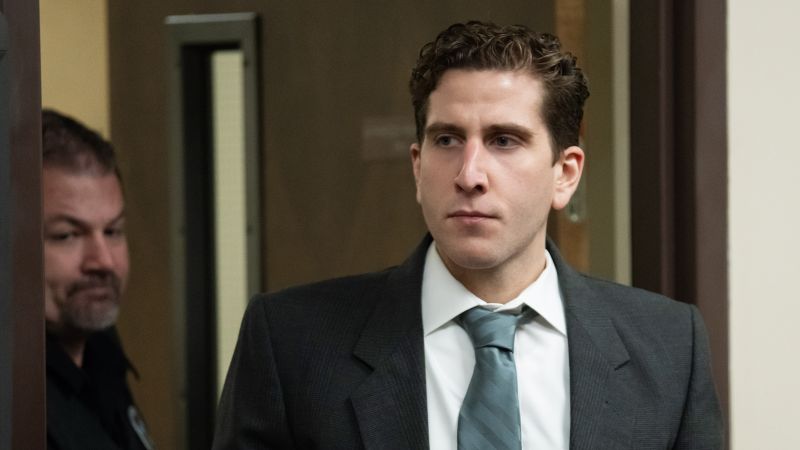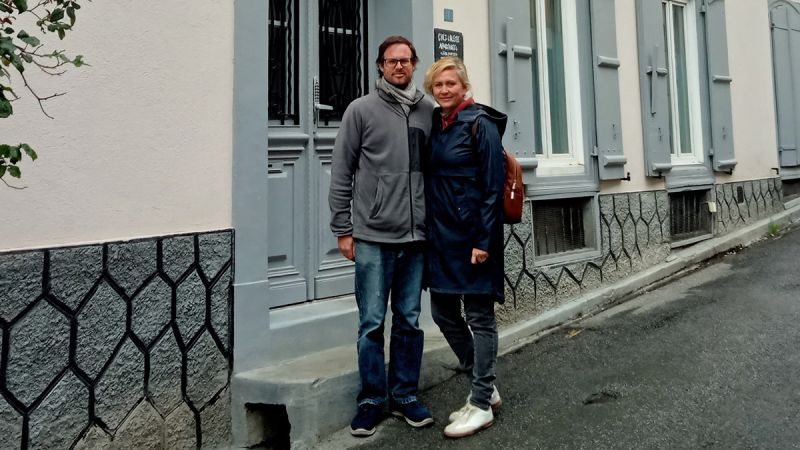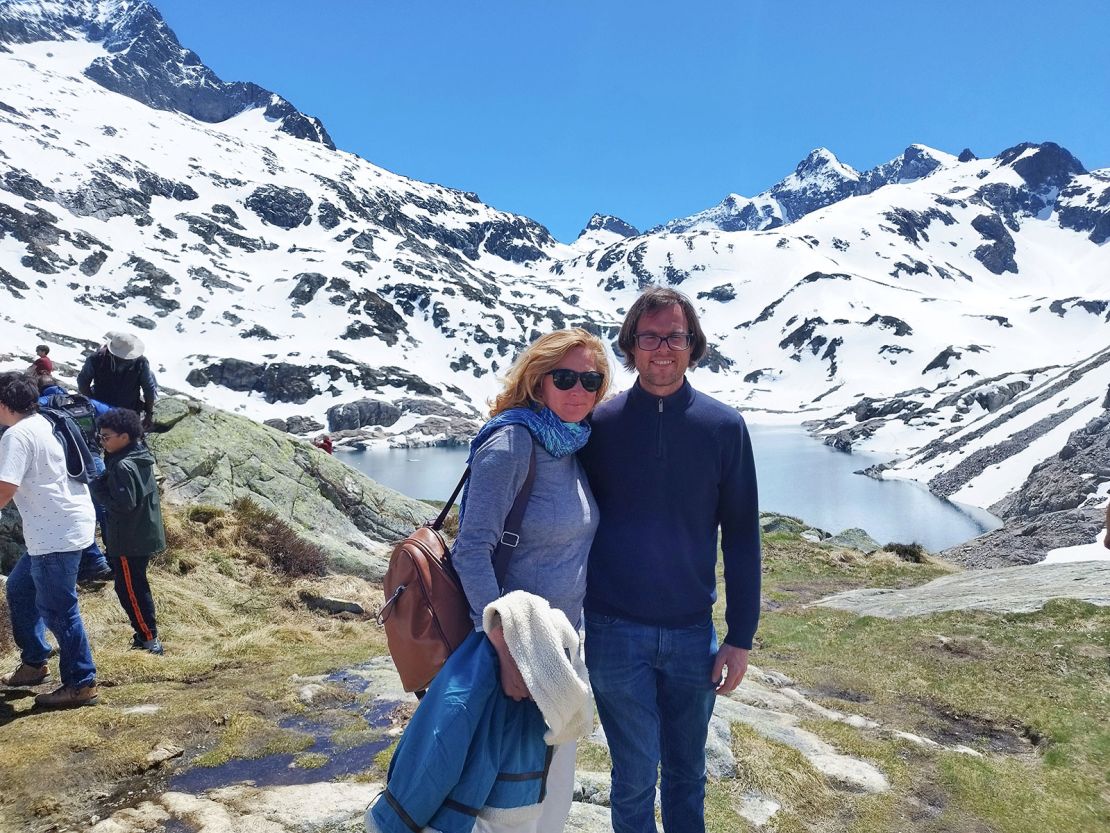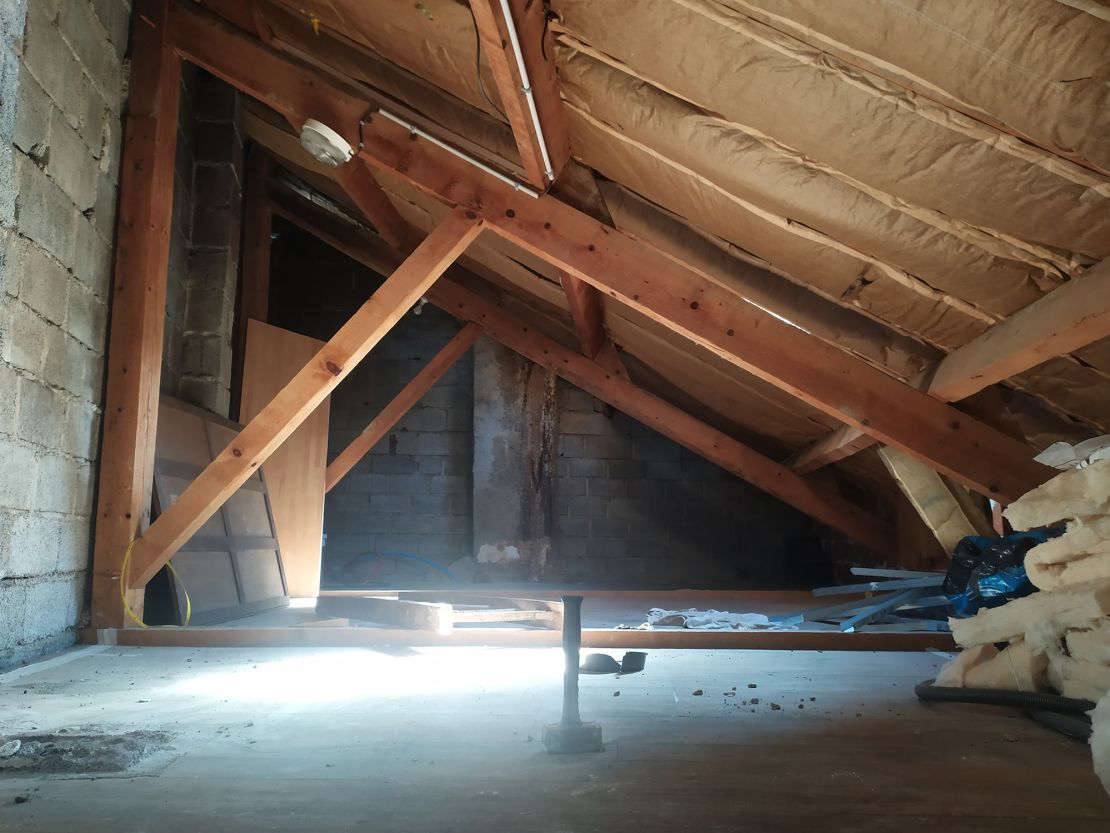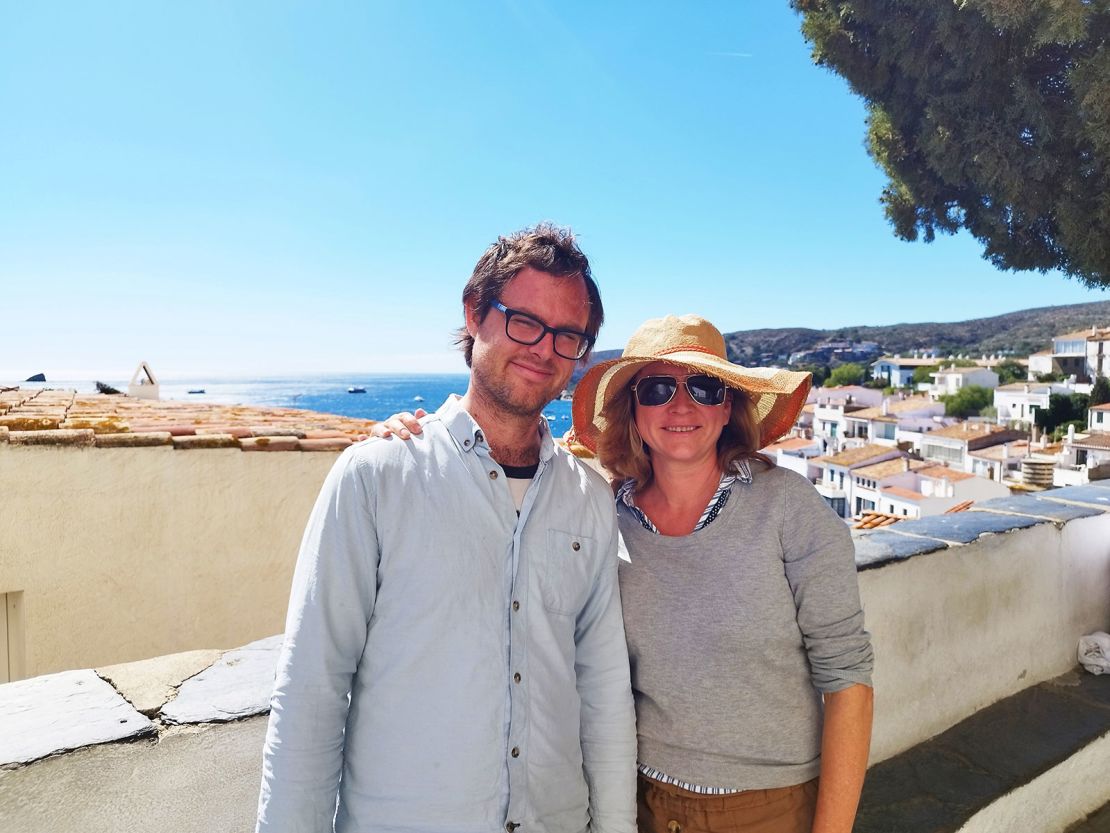CNN
—
Prosecutors are allowed to keep a wealth of evidence in their case against Bryan Kohberger, the man accused of killing four University of Idaho students in their off-campus home in 2022, a judge has ruled.
The Idaho judge’s decision to deny defense motions relating to the suppression of different types of evidence is among the latest developments ahead of the trial, which is scheduled to begin in August 2025.
It’s been a long and winding road since the four students – Kaylee Goncalves, Ethan Chapin, Xana Kernodle and Madison Mogen – were fatally stabbed in the overnight hours of November 13, 2022, at a home just off the school’s main campus in Moscow, Idaho.
Kohberger, a Washington State University graduate student in criminology, was arrested in the killings on December 30, 2022, in his home state of Pennsylvania. He was charged with four counts of murder; a not guilty plea was entered on his behalf in May 2023, and his attorneys have indicated the 29-year-old intends to present an alibi as part of his defense.
The progression of the case has been slowed by a series of pre-trial motions and hearings that have frustrated the family of one of the victims as well as the judge overseeing the case.
The hearings largely fall into a few different buckets. One relates to the defense attorneys’ access to evidence, particularly how the prosecution used investigative genetic genealogy in building the case. A second set of hearings concerns Kohberger’s proposed alibi for his innocence. Third, there have be a number of hearings related to a gag order that restricts what the parties can publicly say about the case.

Here’s a timeline of some of the notable pre-trial developments and decisions so far:
June 9, 2023: A coalition of media organizations and the family of one of the victims came to court to challenge the gag order placed on the parties in the case.
June 23, 2023: Latah County Judge John Judge denied both requests but issued a revised gag order that allows the parties to discuss topics that do not have a “substantial likelihood of materially prejudicing or otherwise influencing the outcome of the case.”
August 2, 2023: Kohberger’s attorneys said they would use an alibi defense but couldn’t pin down their client’s specific location on the night of the killings because he was “driving during the late night and early morning hours.”
“Mr. Kohberger is not claiming to be at a specific location at a specific time; at this time there is not a specific witness to say precisely where Mr. Kohberger was at each moment of the hours” of the attacks, his attorneys said in a court filing.
October 26, 2023: The judge denied a request to dismiss the grand jury indictment after the defense argued there was an error in the grand jury instructions.
December 18, 2023: The judge denied a second motion to dismiss the indictment after the defense argued prosecutors failed to comply fully with state rules on jury selection and the jury questionnaire.
February 28, 2024: Defense attorney Anne C. Taylor asked the court to allow three defense experts and others to view the investigative genetic genealogy evidence, which has been sealed, to understand the full timeline of how police began to focus on Kohberger.
Genetic genealogy is a practice that blends DNA analysis in the lab with genealogical research, such as tracing a person’s family tree. In this case, investigators found a single source of male DNA on the button snap of a leather knife sheath left at the crime scene, according to a probable cause affidavit. FBI investigators loaded the DNA profile to public genealogy sites to search for a match and then sent a tip to investigate Kohberger, according to a prosecution court filing.
The judge initially declined to give the defense investigators extended access to the investigative genetic genealogy, saying he would rather the experts already approved to view the material give justification for digging deeper.
April 4, 2024: The judge criticized Kohberger’s defense attorney, saying she commissioned phone surveys to potential jurors that could hinder Kohberger’s ability to get a fair trial. However, Taylor said the judge violated her client’s right to due process by ordering a stop to the anonymous survey without hearing the defense’s side first.
Judge said he wants a “hearing at least every month,” noting the importance of “cleaning up” the legal proceedings.
April 17, 2024: Kohberger’s defense lawyers filed a court document saying they plan to offer a cell phone tower and radio frequency expert to partially corroborate his proposed alibi that he was out driving west of Moscow on the night of the slayings.
April 19, 2024: The judge allowed surveys conducted with potential jurors to continue “without modification” after temporarily pausing them.
April 29, 2024: The prosecution asked the court to deny Kohberger the opportunity to add to his alibi and to preclude anyone other than the defendant to testify as to his whereabouts on the night of the killings.
May 2, 2024: Kohberger’s defense had asked for an upcoming evidentiary hearing with witnesses be made public, while the prosecution asked that it be sealed. The judge ruled that it will be closed to the public.
After the hearing, the family of Goncalves, one of the victims, criticized the slow pace of the proceedings. “This case is turning into a hamster wheel of motions, hearings, and delayed decisions,” adding they were “incredibly frustrated.”
May 23, 2024: Taylor, the defense attorney, questioned a Moscow police detective about the preparation of visual cell phone logs and methods for searching for certain videos. The testimony was related to two motions to compel prosecutors to share discovery with the defense, but the contents of the motions are sealed, so it was not clear what they were requesting.
May 30, 2024: The Moscow police detective leading the investigation and a defense expert in cell phone location data testified that the defense has not received some key evidence in the case.
Cpl. Brett Payne, the lead investigator on the case, testified he and other investigators collected thousands of hours of video surveillance as they tried to locate a white Hyundai Elantra connected to the suspect. The videos are saved on various thumb drives, but there is no central inventory of the videos, he testified. He also said investigators did not see on any of the videos the Elantra going south from Moscow toward Pullman, Washington, in the early morning hours after the killings.
The probable cause affidavit used in the case alleges Kohberger drove south toward Pullman after he committed the four killings.
Sy Ray, an expert on cell phone geolocation data, testified that he has not been provided the underlying AT&T source data and list of nearby cell towers that was used by detectives to create a map of Kohberger’s movements with his cell phone. Based on the data he had received, he believed some statements in the records were not accurate, and he said the missing data could be helpful to the defense.
“Because of the piecemealing of the data, because of the missing data, because of data that I’m reviewing that is incredibly inaccurate, everything that is missing is absolutely to the benefit of the defense right now,” he said.
June 7, 2024: After previously restricting who had access to the investigative genetic genealogy evidence, the judge ruled to allow unnamed “defense investigators” to view the material.
June 27, 2024: The parties set a trial date of June 2, 2025. Judge set aside about three months for the trial, including two weeks for jury selection, eight weeks for the trial and two weeks for potential post-conviction hearings and sentencing.
“This is a great step to set these deadlines and hearings so that we can move through this,” he said.
July 22, 2024: Kohberger’s defense team filed a memorandum in support of moving the case out of Latah County, saying he can’t receive a fair trial there “because of the extensive publicity that is ongoing and inflammatory.” The defense suggested the trial be moved to Ada County, which includes Boise, about 300 miles south.
August 13, 2024: Prosecutors objected to the defense team’s change of venue motion, arguing the defense failed to prove that Kohberger would not receive a fair trial in the county. “The Court should deny Defendant’s motion and instead, focus on crafting remedial measures to ensure that a fair and impartial jury can be seated in Latah County,” the prosecution argued.
August 19, 2024: In a reply to the state’s objection, Kohberger’s defense said moving the venue to Ada County is supported by expert analysis, precedent and results of a survey in Latah County showing a “mob mentality.” “The traumatized town of Moscow is understandably filled with deeply held prejudgment opinions of guilt,” the defense wrote.
August 29, 2024: At a hearing on the change of venue request, four expert witnesses testified for the defense about potential biases among the local jury pool. The prosecution did not call any witnesses.
September 5, 2024: Kohberger’s defense team filed 13 motions aimed at removing the death penalty from his case.
Attorneys argued the death penalty is unconstitutional because it violates international human rights law and prevents the right to a speedy trial. They said the methods used to put inmates to death in Idaho equate to cruel and unusual punishment and the practice violates the public’s evolving standards of decency. Kohberger could be executed by firing squad if he’s sentenced to death – and if the state cannot obtain the drugs necessary for a lethal injection. The court has set October 10 as the deadline for the state’s response.
September 9, 2024: Judge John Judge granted the defense motion to move the trial out of Latah County due to concerns the local community is prejudiced against him.
“Considering the undisputed evidence presented by the defense, the extreme nature of the news coverage in this case, and the smaller population in Latah County, the defense has met the rather low standard of demonstrating ‘reasonable likelihood’ that prejudicial news coverage will compromise a fair trial in Latah County,” the judge wrote. The judge also highlighted logistical issues with holding such a high-profile case in Latah County.
September 12, 2024: The Idaho Supreme Court ruled to move Kohberger’s trial to Ada County, which surrounds the capital city of Boise and is the most populous county in the state. Ada County District Judge Steve Hippler will take on the case, the court ruled.
September 26, 2024: The new judge in the case told lawyers he was weighing whether to change the trial date. Hippler would prefer to move the trial – scheduled to start in June – to either May or September, because he anticipated issues with keeping a jury intact during a lengthy summer trial, he told prosecutors and defense attorneys during his first hearing in the case.
The gag order that was issued when the case was in Latah County would remain in place, Hippler also said.
October 9, 2024: Judge Hippler moved Kohberger’s trial date two months later, setting it to begin August 11, 2025. The voir dire portion of the jury selection process will start July 30, 2025, Hippler ordered.
November, 7, 2024: Hippler said he is considering several motions filed by the defense to have the death penalty dismissed in this case. The defense argued the death penalty violates Kohberger’s constitutional rights, which protect him from cruel and unusual punishment, and it violates international law. Kohberger’s attorneys said the death penalty creates a potential conflict with his constitutional rights to effective counsel and a speedy trial, among other concerns.
The court said it will issue written decisions for these motions at an unspecified later date.
November 15, 2024: Kohberger’s defense team filed 13 motions asking to suppress evidence from information obtained through multiple warrants. The information, which includes cell phone records, internet data and searches of his car and parents’ house, has constitutional issues and was obtained through the use of investigative genetic genealogy, his team said. The use of investigative genetic genealogy to identify Kohberger is a longstanding issue in the case.
The defense also requested a hearing to discuss the motions.
November 20, 2024: Judge Hippler allowed prosecutors to continue to pursue the death penalty against Kohberger, denying the defense’s motions on the issue. Defense attorneys in September filed 13 motions arguing against the death penalty, saying it would violate Kohberger’s constitutional rights, protecting him from cruel and unusual punishment, and would violate international law, among other concerns.
Hippler addressed the defense’s arguments in his order, saying none of them are strong enough to counter existing case law and precedent.
January 23 and 24, 2025: During a motions hearing, Kohberger’s defense team called for the suppression of evidence stemming from the investigative genetic genealogy process, claiming it’s a violation of the defendant’s constitutional right to privacy. They also called for suppression of cell phone records for the same reason.
The defense also requested a Frank’s hearing, which would determine whether law enforcement intentionally or recklessly included a false statement in their original search warrant affidavit. Defense attorney Anne Taylor argued important facts were left out of the affidavit, including that unknown male DNA was found mixed with Kohberger’s DNA on a handrail at the house, and another unknown male DNA sample was found on a glove outside the house. She also noted no DNA found at the crime scene was found in Kohberger’s car or on his steering wheel.
Judge Hippler said the unknown male DNA doesn’t exclude Kohberger, but might indicate someone else was involved. Kohberger’s DNA on the knife sheath alone establishes probable cause for arrest, Hippler said.
The prosecution argued probable cause was established that Kohberger committed crimes and therefore all warrants were valid.
Hippler did not immediately make a decision. If a false statement is found, it means Kohberger’s case could potentially be dismissed.
February 19, 2025: Judge Hippler denied a motion to suppress critical DNA evidence, allowing the investigative genetic genealogy process to remain in evidence, ruling the defense did not show Kohberger’s constitutional rights were violated.
Multiple motions from Kohberger’s defense team requesting the suppression of information obtained through warrants to AT&T, Google, Amazon and others were also denied, as well as an arrest warrant and several other search warrants, saying that the defense did not meet the standard needed for exclusion.
Hippler also denied a request for a Franks hearing, which would have determined whether law enforcement intentionally or recklessly included a false statement in their original search warrant affidavit. In his order, he said the standards needed for that hearing were not met.
February 21, 2025: New details emerged after a judge unsealed a partially redacted transcript from a hearing originally closed to the public, giving an inside look at the fight to use investigative genetic genealogy in the case. Judge Hippler ultimately allowed the evidence to be used.
The prosecution filed a motion requesting to use a model of the house where the stabbings occurred during the trial. In a series of filings, the prosecution also asked the judge to bar the admission of certain defenses, including use of an alibi and claiming there was another perpetrator, without sharing evidence first. They also asked that certain expert testimony on Kohberger’s mental health – which is currently sealed and not viewable by the public – not be allowed.
February 24, 2025: Attorneys for Kohberger claim in a motion that their client has autism spectrum disorder – or ASD – and executing him would violate the Eighth Amendment’s prohibition on “cruel and unusual punishment.” A “Motion to Redact or Seal Newly Filed Records” was also entered. The motions mark the latest attempt by Kohberger’s attorneys to try to remove the possibility of the death penalty.
March 3, 2025: Hippler warned attorneys for Kohberger and prosecutors to stop filing so many sealed documents and said the court will “look with scrutiny” at further requests to seal court documents. The judge urged in a court order for both sides to use the “least restrictive method” to protect private information, such as redacting documents rather than sealing them entirely.
March 5, 2025: A motion by the defense is unsealed, revealing a three-person mixture of unknown DNA was found under victim Mogen’s fingernails. The defense asked that the DNA evidence be kept from the jury in Kohberger’s trial because jurors could believe the DNA is Kohberger’s.
March 6, 2025: Text messages between the two surviving roommates in the off-campus home are unsealed, along with the transcript of the 911 call made by the roommates before first responders arrived on scene.
In another defense motion, Kohberger’s attorneys argue that the death penalty should be taken off the table because they cannot possibly review the enormous amount of discovery in time for the August trial.
March 19, 2025: Several court documents were unsealed, including a limited search warrant that revealed Kohberger had bought a Ka-Bar knife, a sheath and sharpener on Amazon eight months before the homicides. As the sheath, prosecutors have said, contained a “statistical match” to his DNA, now they argue the purchases before the homicides make it “more probable … that the sheath found at the crime scene was Bryan Kohberger’s,” according to court documents.
Other court documents include a selfie Kohberger allegedly took hours after the killings. Prosecutors argue Kohberger’s “bushy eyebrows” match descriptions given by a surviving roommate, who was present at the time of the murders.

Additionally, other unsealed documents shed new light on the communications of two surviving roommates, including details on their texts and phone calls in the hours after their housemates were killed.
March 26, 2025: In a newly released court filing, Kohberger’s attorneys argue the defendant doesn’t understand the magnitude of his actions due to his autism spectrum disorder and, therefore, should not be considered for the death penalty.
The documents include an anecdote describing Kohberger making small talk with an officer at the back of a squad car after his arrest, where he asked the officer about his education and suggested they get coffee at a later date.
“He did not perceive the profoundly serious nature of the moment and exhibited no perception of what was happening,” the filing said.
In a separate filing, prosecutors reveal store records showing that Kohberger purchased a black balaclava from Dick’s Sporting Goods in January 2022 –– one that matches a description given by a surviving roommate who saw an intruder in the house the night of the stabbings.
Other evidence prosecutors cited included an academic paper Kohberger wrote for a criminal justice class in 2020. The 12-page paper, titled “Crime-scene Scenario Final” details a case involving a 35-year-old woman who was stabbed to death with a knife at a trailer park, including steps on how he would assess a crime scene if he were an investigator. It was not immediately clear whether the case described in the paper is hypothetical or real.
The paper “would be introduced to show Defendant’s knowledge of crime scenes,” the documents read, with prosecutors pointing to aspects of the case that are similar to the University of Idaho murders, such as the use of the knife, surveillance video and collection of DNA.
April 24, 2025: The judge denied Kohberger’s motion to strike the death penalty over Kohberger’s autism spectrum disorder diagnosis.
April 29, 2025: The judge denied Kohberger’s motion to strike the death penalty over the high volume of discovery.
This story has been updated with additional information.

